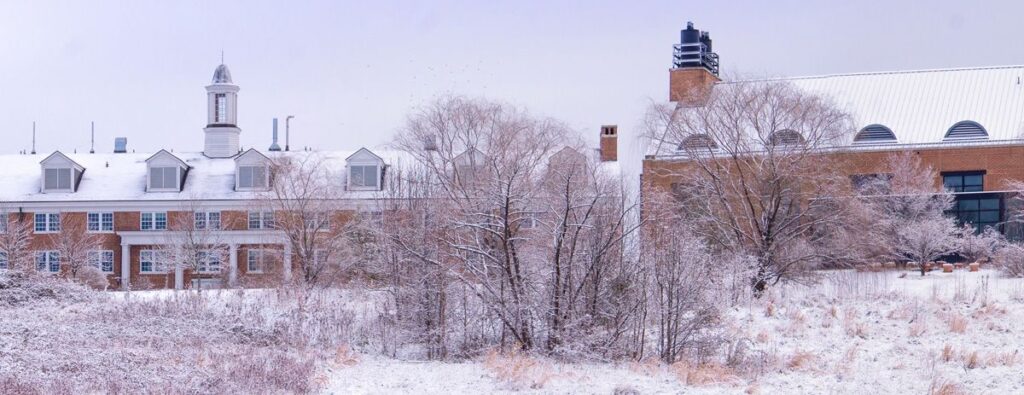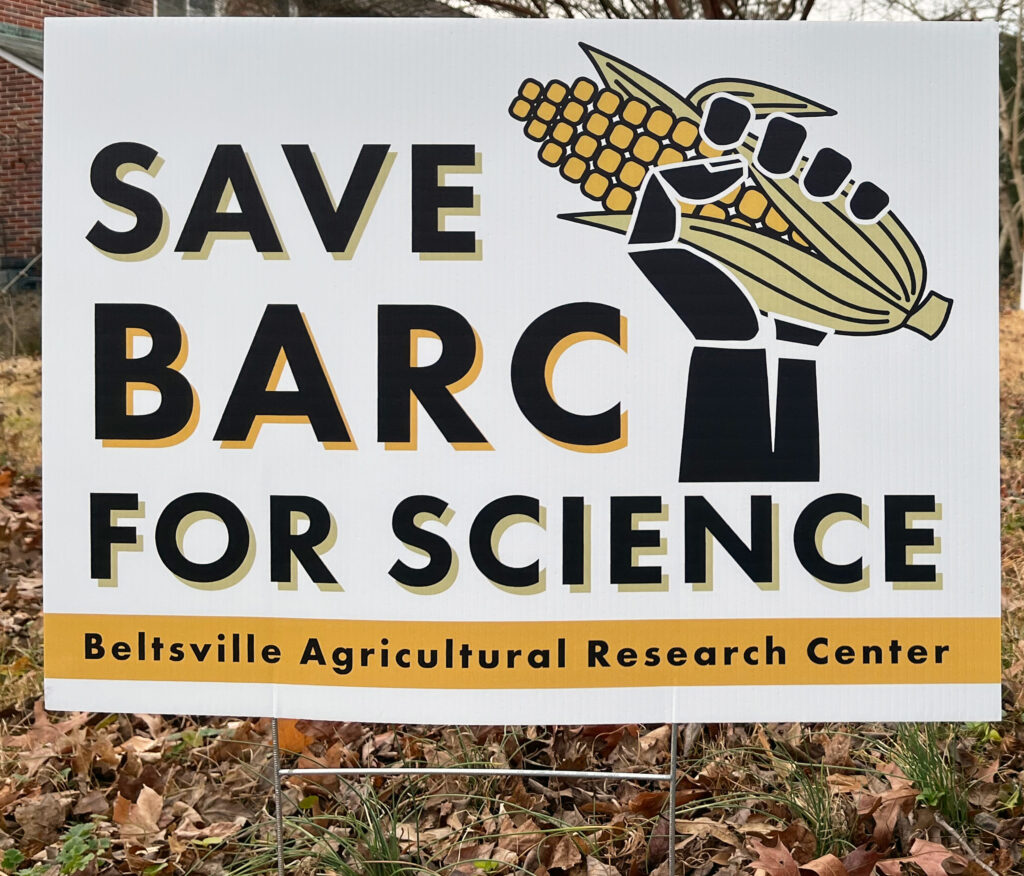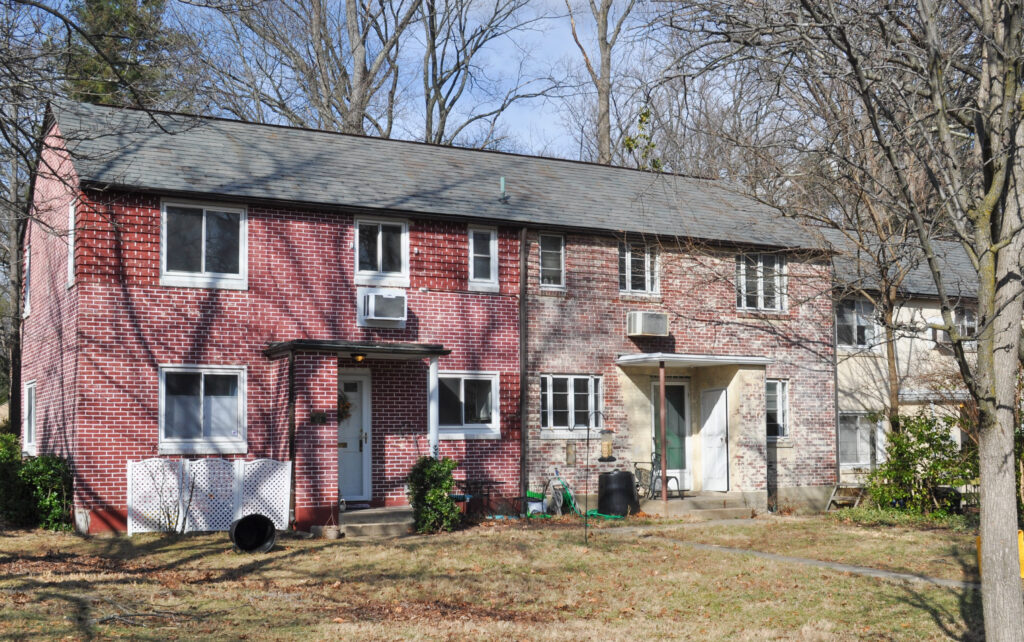The reviews were prepared by Matt Arbach, Donna Hoffmeister, Cathie Meetre, Diane Oberg and Pat Scully.
Vaccine Site at Metro
The Greenbelt Metro Station became a mass Covid-19 vaccination site, operated by FEMA in conjunction with the State of Maryland and staffed by Air Force and Coast Guard workers. The site distributed more than 116,000 needle jabs during its operations from April 7 through June 1, giving its 100,000th shot on May 13. The site distributed the Johnson & Johnson vaccine, which requires just one shot. The site was closed based on slowing demand for the vaccine, which had become more widely and readily available as the year progressed, following the mad scramble to find a shot in the early spring.
Former President Barack Obama visited the Greenbelt Metro site on May 6, as he was making a video to be used to encourage everyone to get vaccinated. He waved, elbow bumped, thanked the workers and praised those getting vaccinated: “Way to be good citizens!”
Officer Chris Peters
On January 2, 22-year veteran of the Greenbelt police force Corporal Christine Peters was struck by a vehicle while she was on foot assisting U.S. Park Police at an accident on Edmonston Road north of Cherrywood Lane. She died from her injuries on January 14. Representatives from numerous local police forces, including Berwyn Heights, Langley Park, Bowie and the U.S. Park Police, as well as Greenbelt’s Volunteer Fire
Department, paid tribute at her funeral procession on January 22.
On November 5, a sign beside the road at the site of the accident was dedicated in her memory.
Covid-19 and Greenbelt
A driving force in 2021 was the first full year of Covid-19 and the arrival of vaccinations. Most organizations went to virtual everything and many locations remained closed, only gradually opening as the year went on and vaccinations began to take a bite out of the spread. Schools went back to in-person learning in September, the Greenbelt Library cautiously reopened and the Old Greenbelt Theatre opened its doors to the vaccinated. Other local businesses followed as they could.
But as fall went on, more transmissible variants – first Delta and then Omicron – began to appear, setting things back. Masks again became compulsory and, as Christmas approached, testing sites were inundated and schools announced a return to remote learning.
Greenbelt followed the pattern of Prince George’s County, with cases and vaccinations following similar curves. Vaccination percentages remained lower in the county than in Montgomery and Howard counties, though higher than others.
Maglev Chugs Along
On January 15, the Federal Railroad Administration (FRA) released the Baltimore-Washington Rapid Rail (BWRR) Draft Environmental Impact Statement (DEIS) on the proposal to build a Baltimore-to-Washington Superconducting Magnetic Levitation (SCMaglev) train. By the May 24 deadline for public comment, the city (through its legal counsel on SCMaglev, Jill Grant and Associates), other elected officials, many residents and local, civic and environmental groups submitted responses critical of the DEIS. On August 6, the FRA denied a Freedom of Information Act request for ridership data because they said they needed to protect trade secrets and personal information. On August 25, the FRA paused its review of the DEIS. After that, the Army Corps of Engineers also paused the permitting review process. On August 30, BWRR lost their court battle in Baltimore when they attempted to use eminent domain to acquire rights of way in the Baltimore neighborhood of Westport. On November 6, the Maryland Coalition for Responsible Transit filed an appeal to challenge FRA’s refusal to share ridership data. On December 21, Rod Simmons gave a presentation to the Maryland Native Plant Society about the rare pristine wetlands and the globally rare Pine Barrens habitat in the Beltsville Agricultural Research Center and the Patuxent Research Refuge that SCMaglev would irreparably destroy. Meanwhile, Northeast Maglev, the SCMaglev project co-sponsor with BWRR, publicly claimed the widespread popularity of the project and BWRR engaged in heavy lobbying.
Beltway Plaza Redevelopment
In September, the Prince George’s County Planning Board approved the site plan for the first phase of the redevelopment of Beltway Plaza into a mixed-use development with 750 residential units, a 92-room hotel, 27,000 square feet of indoor recreation space, a dog park and eight acres of open space. The Greenbelt City Council had approved the plan in August after the developer made significant changes to the plan to meet council’s concerns. Construction of Phase 1 could begin next year and be completed in five to eight years.
The Café and the Co-op
Another victim of Covid-19, the New Deal Café finally reopened in the late summer, steadily increasing its range of activities to include food service and music. The new and interesting twist was that food and beverage service had become the fief of the Co-op Supermarket. In a new venture on cooperatives cooperating, the Café and the store created a partnership that capitalized on the proximity and buying power of the Co-op to aid the Café, and use of the Café’s commercial kitchen facilities to support the Co-op’s increasing venture into prepared foods. Walking through Roosevelt Center will often result in an encounter with a laden cart heading from one location to the other.
Starting small, the new operation opened with coffee and bagels, gradually expanding its range to include delicious cupcakes, tasty chilis and a range of dinner options. Covid-19, especially with the new resurgence, continues to impact attendance, but long-term expectations remain high.
A Successful Year for Co-op
In completing and turning on its solar array early in the year, the Co-op Supermarket reached the culmination of nearly three years of effort in applying for, receiving and implementing its solar roof program. The array has already bitten into costs – with approximately $40,000 in energy savings in the first months of operation – a figure that exceeded expectations. Other savings can also be credited to the program as a whole, in particular the absence of roof leaks.
Energy and maintenance savings, steady sales operations and the effect of government grants allowed the Co-op to declare its first dividend to patrons for some years and enabled it to contribute to employee retirement benefits.
During 2021, new General Manager Dan Gillotte completed his first full year at the store. His many and ongoing incremental changes made the store more dynamic. By participating in the bold experiment with the New Deal Café, he has brought a new energy to store operations. Creative sourcing, especially from local vendors and producers less subject to global supply chain issues, has helped Co-op continue to provide options during a time of revolving shortages.
Election
After months of increasingly contentious council meetings, often stretching into the wee hours of the next day, November’s voters gave Greenbelt a substantially changed city council. Councilmembers Edward Putens and Leta Mach retired. Ten candidates vied for the seven seats, resulting in Emmett Jordan returning as mayor, after two years of Colin Byrd, and newcomer Kristen Weaver being elected as mayor pro tem. Newcomer Brandon “Ric” Gordon and the remaining incumbents were also elected. And by a perhaps unexpectedly large margin, the referendum to establish a committee to study reparations for African American and Native American residents passed, making Greenbelt the first municipality in Maryland to establish such a commission.
Police Reform
Reform of the Greenbelt Police Department was a much discussed and debated topic this year by council and residents. The issue was spurred by Councilmember (then mayor) Colin Byrd’s 2020 Fair and Just Policing Act proposal, which received an extensive review by the Public Safety Advisory Committee. Landmark state police reform legislation was another factor contributing to the reforms. Collectively, these items would amend or alter some of the department’s General Orders, which dictate the department’s day-to-day operations.
The proposed reforms cover a wide range, but many address greater transparency in the collection and release of information, like body camera footage, traffic stops and officer histories. They also require clear accountability standards, including termination, for police misconduct.
While the department has a positive record overall in its dealings with residents and the performing of its duties, the consensus was that comprehensive reform would prevent future abuses and ensure an equitable and responsible police department.
Council is expected to vote on these reforms in January 2022.
Opening of The Granite Building
In early December, The Granite Building opened its doors. With a refurbished interior, the building holds onto its mid-century modern vibe while picking up on current trends. Visitors at the opening were impressed with the space and delighted to see the rejuvenation of the building, which has for several years been uninhabited on the upper floor. The new owners confirmed that the various rooms were fully leased and said that they had a waiting list for space. The opening also sees a return of post office boxes to the center of the city, from which they have been missing since the post office beneath the Co-op grocery store closed its doors in 2006. The downstairs of the building now hosts a medical practice, perpetuating the original use of the building in providing medical care in the center of the city.
Violent Crimes,
Public Police Forums
This year saw a spike in carjackings, robberies and violent incidents. To date, there have been 20 carjackings (three last year), 63 robberies (51 last year) and 25 shootings (same as last year). No particular group is being targeted and they have occurred throughout the city.
The Greenbelt Police Department has endeavored to increase its patrols and redeploy officers to the hotspots at the times when these crimes are most frequent. While the department has not divulged a detailed strategy in order not to alert perpetrators, arrests have been made in several cases.
Chief Richard Bowers indicated that the carjackings are mainly “crimes of opportunity” and not premeditated acts. Often cars are taken when left untended to warm up in the morning or when motorists stop at a traffic light and are ambushed.
The best way to avoid being a victim is to simply be aware of one’s surroundings and not get distracted. If a situation appears risky, residents should heed their instincts and take appropriate steps, including contacting the police. Even a small tip can lead to the avoidance of or solution to a crime.
As 50 percent of the perpetrators are juveniles under the age of 16, Greenbelt police are focused on addressing the onset of criminality through adult mentorship and engaging recreational activities.




